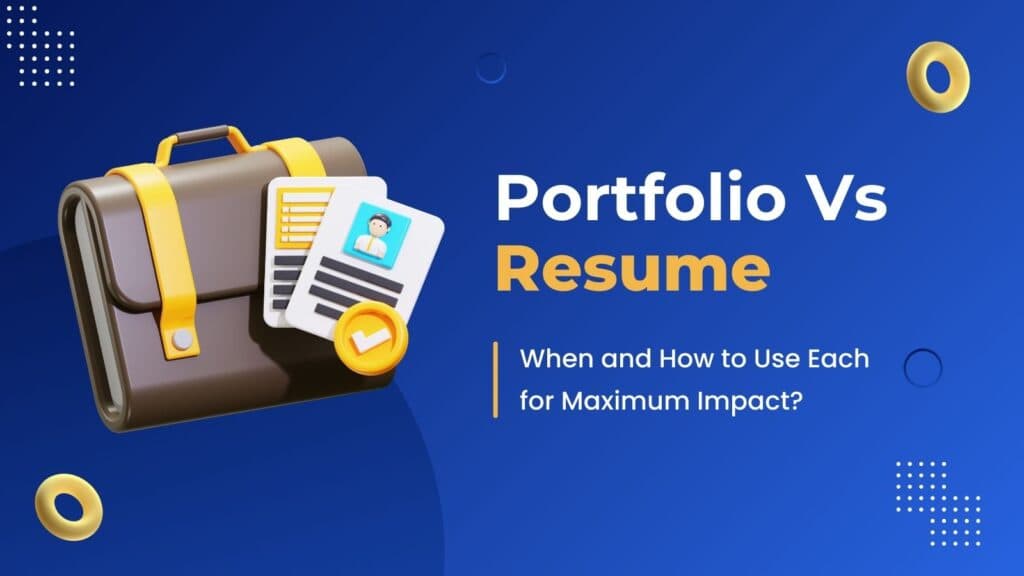How to List Skills on Your Resume: A Guide for Freshers and Professionals
Written by: Rajat Bhardwaj
Summary
- Choosing Skills for Your Resume: Identify key skills relevant to the job role, balancing soft skills like teamwork with technical abilities.
- Skills Section for Freshers vs. Pros: Freshers should focus on foundational skills, while experienced professionals can highlight specialized skills and leadership qualities.
- Tailoring Skills to Job Descriptions: Match your skills with the job posting, focusing on keywords and role-specific requirements.
- Organizing Skills for Impact: Structure your skills into categories like “Technical” and “Soft Skills” to make your resume easy to scan.
- Avoiding Common Mistakes: Skip generic skills and ensure each listed skill adds value to your resume.
If you’re staring at your resume and wondering how to make your skills for resume stand out, you’re not alone. Many of us feel that the skills section can make or break our chances, and the truth is, listing them right can significantly impact how recruiters view you. In this guide, we’ll dive into how to showcase both soft skills for resume and other relevant skills in resume—whether you’re a fresher or a seasoned professional.
Why Skills Matter on a Resume or CV
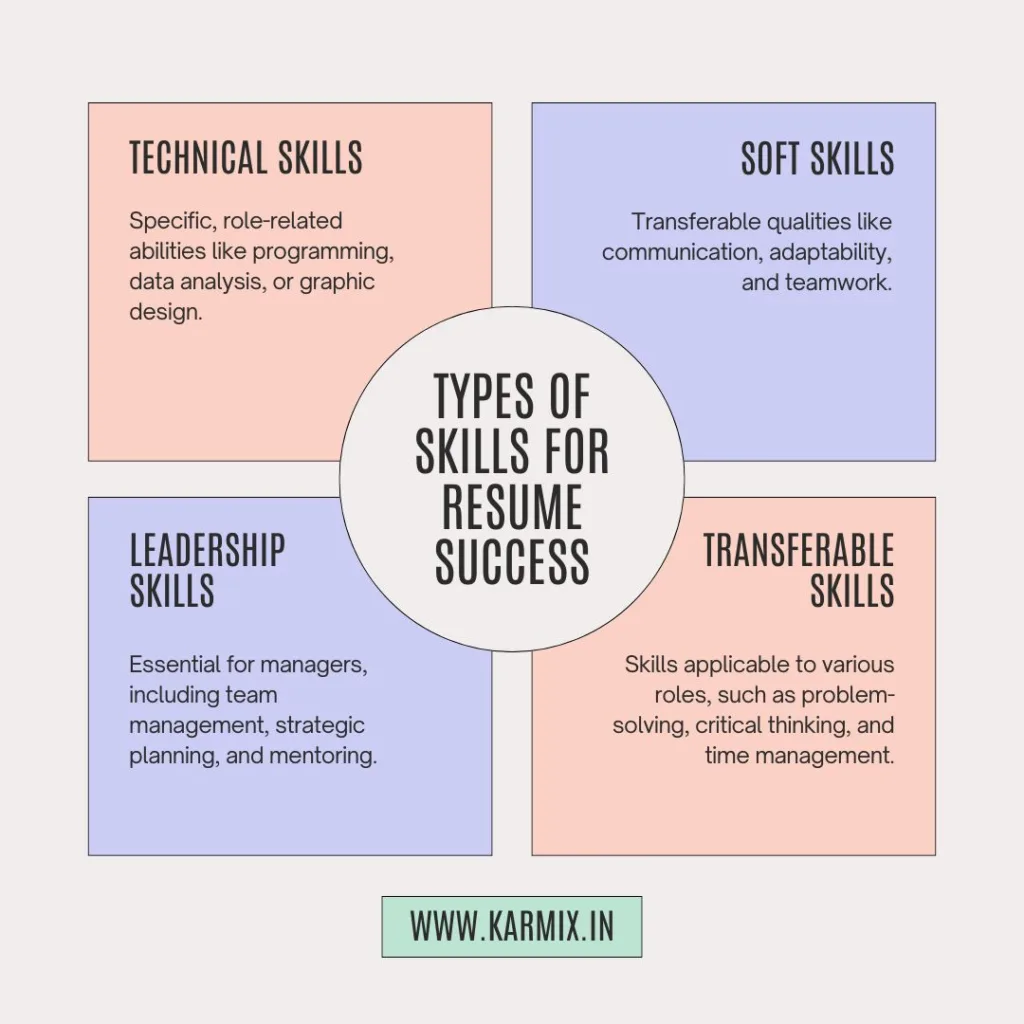
Skills are where you prove your potential. Think of them as the real-world tools you bring to a role. For freshers, skills are often the main focus since there’s limited work experience. For professionals, they highlight the expertise built up over the years. Whether it’s a soft skill for CV or a technical skill, listing the right ones can make a lasting impression. For more on crafting a strong summary, check out Profile Summary for Resume.
Step 1: Choosing the Right Skills for Your Resume
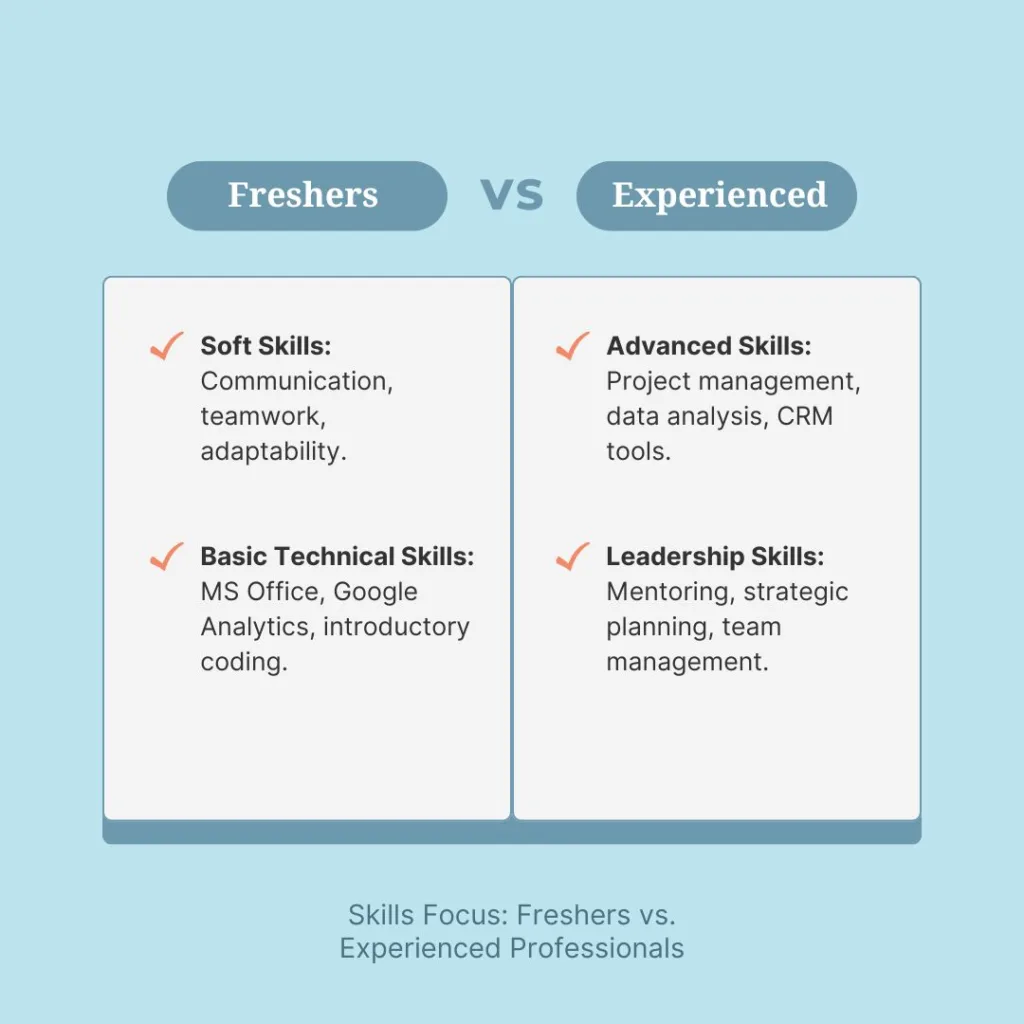
If you’re a fresher, focus on foundational skills. These could be soft skills like communication, teamwork, and problem-solving, or technical skills gained through internships, college projects, or online courses. Start with these types:
- Soft Skills for Resume: Employers love qualities like adaptability and emotional intelligence. Even if you haven’t had a formal job, think about times when you worked well with others or handled stressful situations.
- Technical Skills in Resume for Freshers: If you know specific software, languages, or tools, they belong here. Skills like Excel, basic Python, or design tools can instantly catch a recruiter’s eye.
For experienced professionals, focus on advanced skills that reflect your experience and specializations. Be sure to include industry-specific terms to showcase your expertise.
- Advanced Skills: Go beyond the basics. Highlight areas where you’ve grown beyond entry-level knowledge, like project management or data analysis.
- Leadership Skills: If you’ve managed teams or projects, highlight them! Skills like team management, mentoring, and strategic planning are highly valued.
Step 2: Matching Your Skills to the Job Description
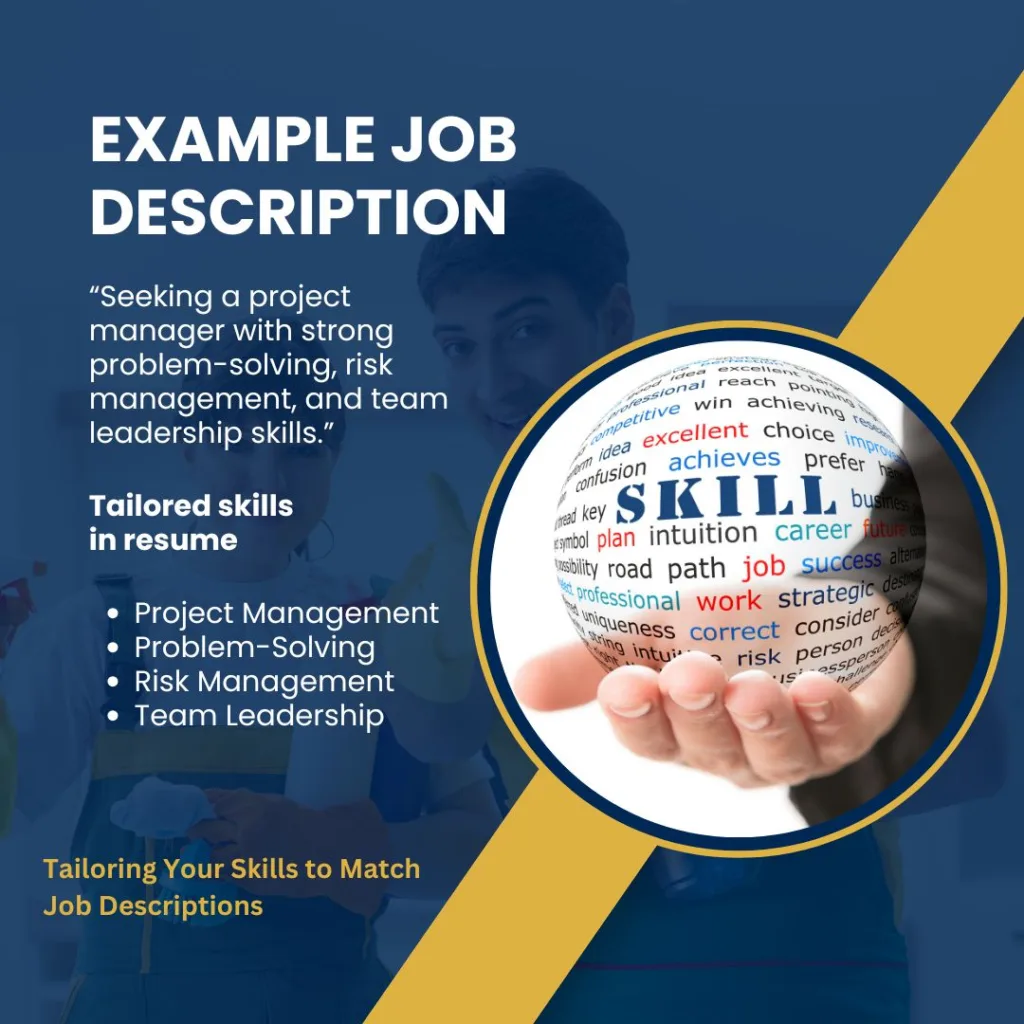
Here’s the trick: tailor your skills for resume to match the job description. Think of it as creating a mini version of yourself that perfectly fits the role. Check the job listing for key terms and match these with relevant skills.
For candidates looking to transition, see our blog on Building a Resume for Career Switch.
Step 3: Organizing Skills on Your Resume
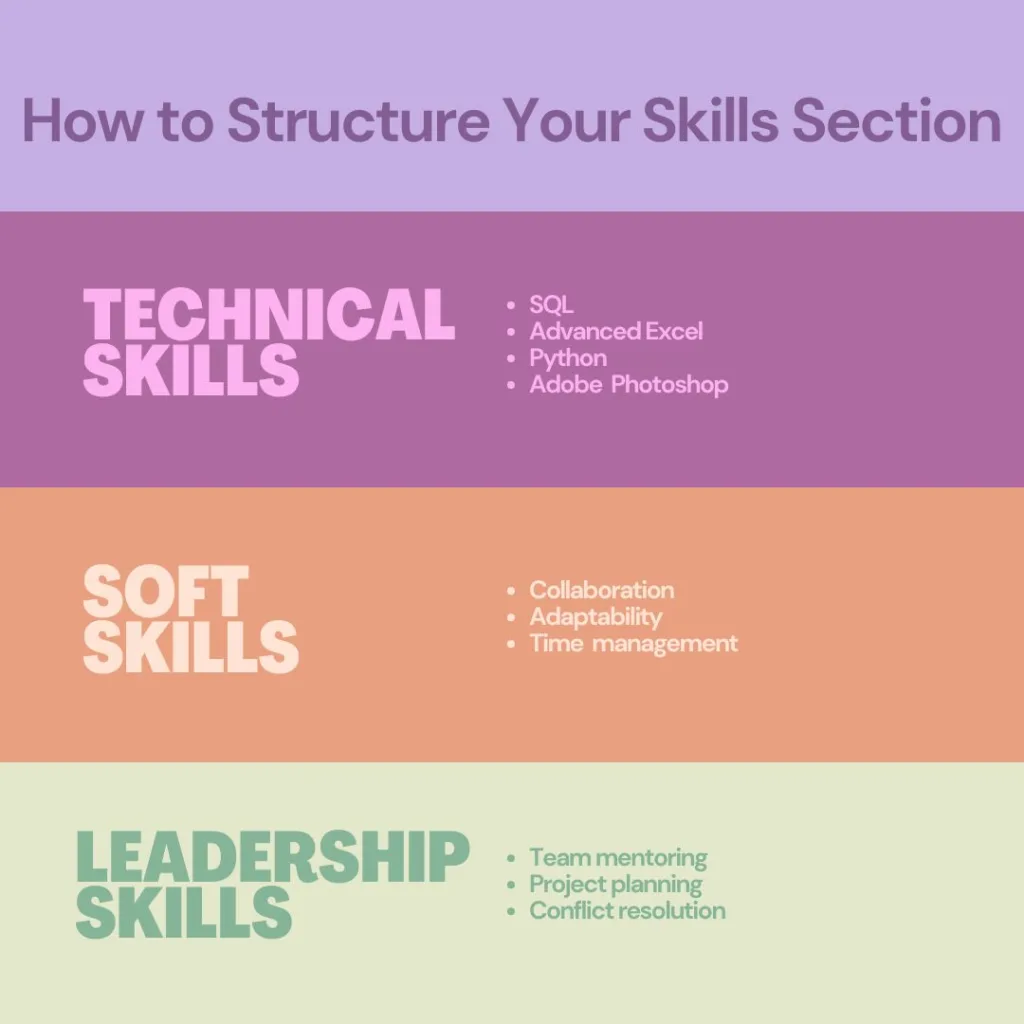
Now that you’ve identified your skills for CV, where do they go? Here are some ways to structure your skills section based on your experience level:
For Freshers:
Place your skills for resume for freshers at the top or just below your education section since they’re a big part of your profile. Here’s an example layout:
Skills
- Soft Skills for CV: Communication, Collaboration, Adaptability
- Technical Skills in Resume for Freshers: MS Excel, Basic Python, Google Analytics
For Experienced Professionals:
Group your skills into categories. This structure allows recruiters to see your expertise at a glance. Here’s an example:
Key Skills
- Project Management: Agile Methodology, Risk Management, Budgeting
- Technical Skills for Resume: SQL, Advanced Excel, Salesforce
- Leadership Skills: Team Mentoring, Performance Management, Strategic Planning
Step 4: Describing Your Skills in Context
Listing skills is one thing, but showing how you’ve used them brings them to life. For instance, rather than just writing “Leadership,” mention “Led a team of 5 on a six-month project to reduce operational costs by 20%.”
For freshers, if your experience is mostly project-based, describe your contributions, like “Collaborated with a team to develop a marketing plan for a small business as part of a college project.”
Need more guidance on crafting each section? Check out our blog on Work Experience Resume.
Step 5: Balancing Soft and Hard Skills
A balanced mix of soft skills for resume and technical abilities shows you’re well-rounded. Freshers may lean more on soft skills, while professionals can focus on advanced technical knowledge.
For a solid foundation, review tips on showcasing your Education Details Resume.
Tips for Skill Highlighting Success
- Be Real: Avoid adding skills just to sound impressive. Stick to what you genuinely know.
- Use Industry Language: Especially for professionals, using terms that match industry standards can set you apart.
- Quantify When Possible: Metrics like “Increased sales by 15% through CRM optimization” are eye-catching.
Avoiding Skill Listing Pitfalls

A lot of resumes list generic skills like “Microsoft Word” or “Email” under technical skills. Focus on more advanced or industry-specific tools. Basics are assumed, so don’t let them crowd your skills section. And avoid listing too many soft skills without examples—they can feel vague.
For a unique and professional look, consider using our Forbes Resume Template to showcase your skills effectively.
Final Thoughts: Make Skills Count
Your skills are your toolkit, and highlighting them well is crucial for your resume. Whether you’re a fresher or a professional, following these steps can help you list your skills for resume in a way that gets noticed. Remember, it’s all about balance, relevance, and authenticity.
Recruiters can tell when someone’s put thought into their skills section. So make it count, keep it honest, and good luck landing that next big role! To enhance the quality of your resume, check out our guide on adding Personal Details Resume professionally.

